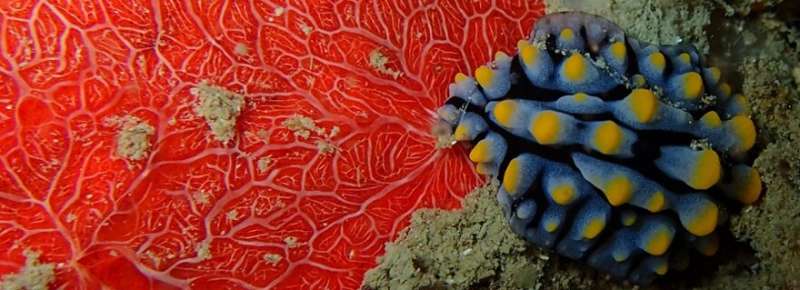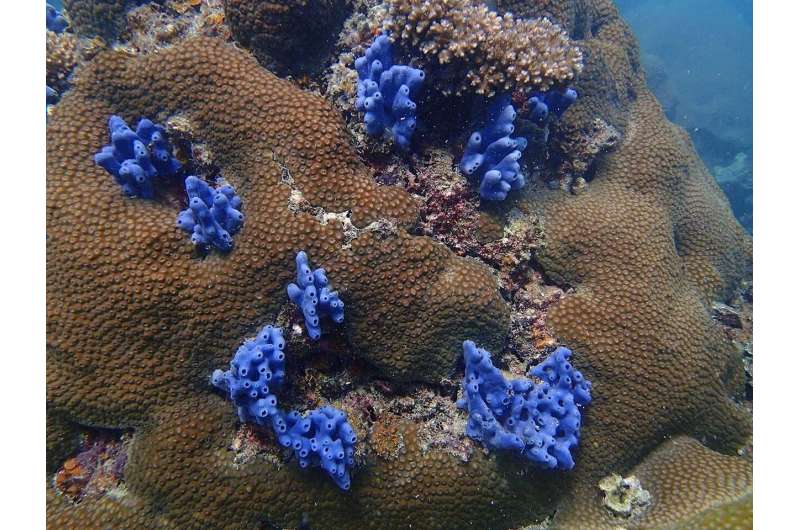New dimension to coral research

For the first time, international researchers have mapped the network of bacteria on coral reefs. They write about it in Nature Communications (9 April). Professor by special appointment Nicole de Voogd (Naturalis Biodiversity Center & Institute of Environmental Sciences) and two of her Ph.D. students co-authored the publication.
Bacteria in common
With the results, research into coral reefs literally gets a new dimension. The researchers look beyond the visible organisms, to the microbiome on the reefs that is invisible to the naked eye. In addition, it becomes clear that groups of organisms have much more bacteria in common than expected. This creates a new perspective on the cohesion in the network of organisms on coral reefs, in line with the classical proposition in microbiology: 'everything is everywhere'.
Under water, bacterial management also turns out to be a delicate interplay of exchange and interdependence, just as on-land bacteria play an important role in the relationships between soil and plants and therefore in the capacity for nitrogen fixation. Under water, on the reefs, organisms also depend on nutrients that are released after conversion by bacteria. The study provides a comprehensive overview of the occurrence of bacteria in different organisms and shows which bacteria are shared by groups of organisms.

More information: Daniel F. R. Cleary et al. The sponge microbiome within the greater coral reef microbial metacommunity, Nature Communications (2019). DOI: 10.1038/s41467-019-09537-8
Journal information: Nature Communications
Provided by Leiden University





















